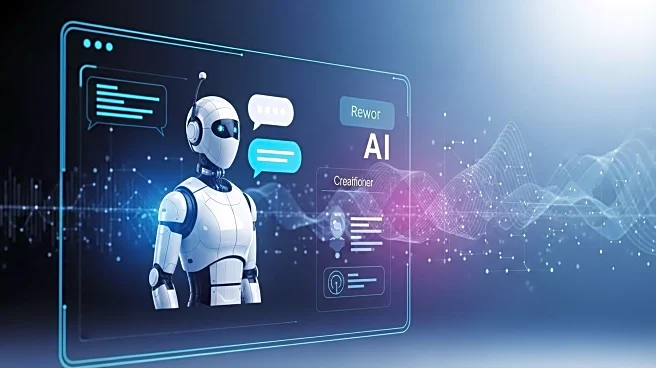What's Happening?
AI chatbots, such as ChatGPT, are increasingly being used by millions of people who often perceive them as having consistent personalities. However, these chatbots are essentially statistical text generators that produce outputs based on patterns in their training data, rather than possessing any inherent knowledge or personality. This misunderstanding can lead to users attributing fixed beliefs to these AI systems, which can be problematic. The illusion of personhood in AI can obscure accountability, especially when chatbots provide inaccurate information or 'go off the rails'. This phenomenon is highlighted by instances where users trust AI-generated information over human advice, as seen in a case where a woman believed a non-existent 'price match promise' from the USPS website, as suggested by ChatGPT.
Why It's Important?
The growing reliance on AI chatbots raises significant concerns about misinformation and accountability. As these systems are increasingly integrated into daily life, the potential for harm, particularly to vulnerable individuals, becomes more pronounced. The illusion of AI having a personality can lead to misplaced trust, which might result in users making decisions based on incorrect information. This situation underscores the need for clearer communication about the capabilities and limitations of AI systems, as well as the importance of developing robust safeguards to prevent misuse and ensure accountability.









